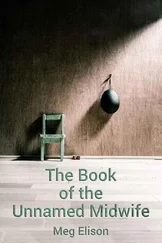One morning she woke up and he was sitting on the edge of her bed holding her DVD box set of the first season of Buffy the Vampire Slayer.
“Can I take this?” he asked.
“What for?”
“To watch.”
“You?”
“There’s nothing else.”
He took it away with him, and a few minutes later she headed downstairs in her hoodie, David Bowie tee and black sweats, on her feet a pair of Sylvester the cat slippers, a holdout from childhood, in which she shuffled across the kitchen floor. Her father was in the middle of the first episode. She put two Pop-Tarts into the toaster and fixed herself a cup of coffee with cream and sugar. She placed the Pop-Tarts on a paper towel and walked over to the recliner and sat down. She ate her breakfast during the concluding five minutes of episode one and the opening minutes of episode two. She had seen the episode a thousand times but happily watched it again, surprised to be watching it with him and pleased to be getting paid for it. At one point he said, “What’d she just say?” and she repeated the line for him, and then they sank back into silence.
He forwarded through the opening credits and they watched the next three episodes. When they were through she got up to use the bathroom. He got up to change discs. She came out and he was waiting for her before starting the next episode. It was a favorite of hers and she wondered how well she knew the lines so she decided to repeat out loud a brief exchange between Buffy and her friend Willow, which caused him to look over. She continued to repeat their lines perfectly all the way to the opening credits and he continued to look at her as the theme song came on.
“My God,” he said. “How many times have you watched this?”
They finished another episode. Around one, he asked if she wanted lunch. They ate their sandwiches in front of the TV and when they were through she took the plates without disturbing him and put them in the dishwasher. She returned to the recliner as he got up to resettle the bedsheet under him and fluff up his pillow and then he started another episode.
“How many do we have left?” he asked.
“Like, five,” she said. “But I have the second season upstairs.”
“How many seasons are there?” he asked.
“Seven,” she said.
They repeated the routine the next day and the day after that. She watched the show, but she also watched him watch it, looking for signs of his nodding off or standing up. But he did neither. Except to replace the DVD or work the remote, he remained on the sofa. When he got off the sofa to replace yet another disc, she finally asked him, “What made you want to watch Buffy, Dad?”
Growing up, she had had all the posters on her walls. She bought every offer of merchandise, the comic books and the novelettes and the magazines, the T-shirts and patches, the notebooks, pens, and pencils. She belonged to the fan clubs and ordered autographed eight-by-ten headshots of the actors. He once sat on the edge of her bed when she was in the eighth grade and asked if there was anything, anything at all, that he could do to make her happy, and she said the only time she was maybe happy was when she was watching Buffy .
“I was curious about it,” he said to her now.
Within the week they had finished the second season. He asked her if she had the third. Between the third season and the fourth he didn’t need to ask. She just got off the recliner and brought the next season down from her bedroom.
They were in the middle of the sixth season when he unexpectedly sat up mid-episode and turned away from the TV. He looked straight ahead, toward the fireplace. He set the remote down on the coffee table. He unbuckled the chin strap and peeled the bicycle helmet from his shaved head. It was startling to see him bald. It was almost like he suffered from a real disease like cancer or something. He placed the helmet and its portable device next to him on the sofa.
“Should you really be taking that off, Dad?” she asked.
“Why am I not walking?” he asked, more to himself than her. “Where has all the goddamn walking gone?”
It was the very thing she had been asking herself for weeks.
Mike Kronish drove to the courthouse every morning with R. H. Hobbs in the back of a tinted SUV. He reassured his client, who had taken to calling him at home late at night, about the previous day’s proceedings, and then prepared him for what would likely happen during the day ahead. The driver let them off at the foot of the courthouse steps, which they climbed in the hundred-plus heat. By the time R.H. entered the grand echoing foyer and joined the line to go through security, perspiration was pouring down his face and he was panting. Mike Kronish had started to fear his client wouldn’t make it through trial without suffering a heart attack. He had appealed to the judge to give them a continuance on that basis, but the judge ordered a physical and reviewed the results and the motion was denied. He would grant it, he told Kronish, when R.H. was admitted to the hospital for chest pains.
They made it through security, where the marshals took away their cell phones and BlackBerrys, and they entered the courtroom together. The judge began the day’s proceedings promptly at nine thirty. Kronish and his client walked through the gate separating the gallery from the well at exactly twenty-two after. Peter was already present, managing the work of two junior associates and three paralegals. They were assembled now no differently from the way they had been every morning since the trial began, with one exception: to the right of Peter in Kronish’s chair sat a man in a gray suit with a bicycle helmet on his head. When the two men came into view, Tim turned and greeted them. He stood up and shook hands with Kronish and R.H. awkwardly, with his left hand. Though it was now summer, the effects of Tim’s frostbite lingered. Kronish asked him what he was doing there.
“I’ve just been getting the rundown from Peter,” he replied. “I’m ready to help any way I can.”
Kronish set his briefcase on the table. “What do you mean, the rundown?”
“I’m all caught up. Peter and I talked.”
“About what?”
R.H. interrupted them. “I thought you were supposed to be at the hospital,” he said. “If it was important to be at the hospital, why aren’t you at the hospital?”
Tim didn’t look at R.H. He looked at Kronish and reiterated that Peter had caught him up and that he was ready to get to work. He also wanted Kronish to know that he’d been reading the transcripts nightly and, frankly, no disrespect intended, they could use his help. Kronish did not want R.H. to know that they had just walked in on the greatest breach of professional protocol he could remember in all his years as a trial lawyer, but he was having difficulty seeing straight. He asked R.H. to have a seat.
“Why is he here?” R.H. demanded. Tim’s reappearance could mean only one thing to R.H. — that his trial was going worse than he suspected, and that they had had to call a man away from his wife’s deathbed in order to salvage it. “Where were you three weeks ago?”
“Have a seat, R.H.,” said Kronish.
“Why haven’t you been here from the beginning?”
Kronish gave Peter a look and Peter understood immediately. Peter jumped up, took gentle hold of R.H.’s arm and started coaxing him into his chair. R.H. went reluctantly.
“What is he doing here?” he asked Peter.
Kronish would have preferred to talk to Tim privately, away from R.H., the prosecution team, and all those looking on from the gallery, but the judge was expected in less than five minutes and would not be pleased to find the defense team’s lead counsel absent from the courtroom. He remained standing, as did Tim, and spoke to him in a soft whisper.
Читать дальше












